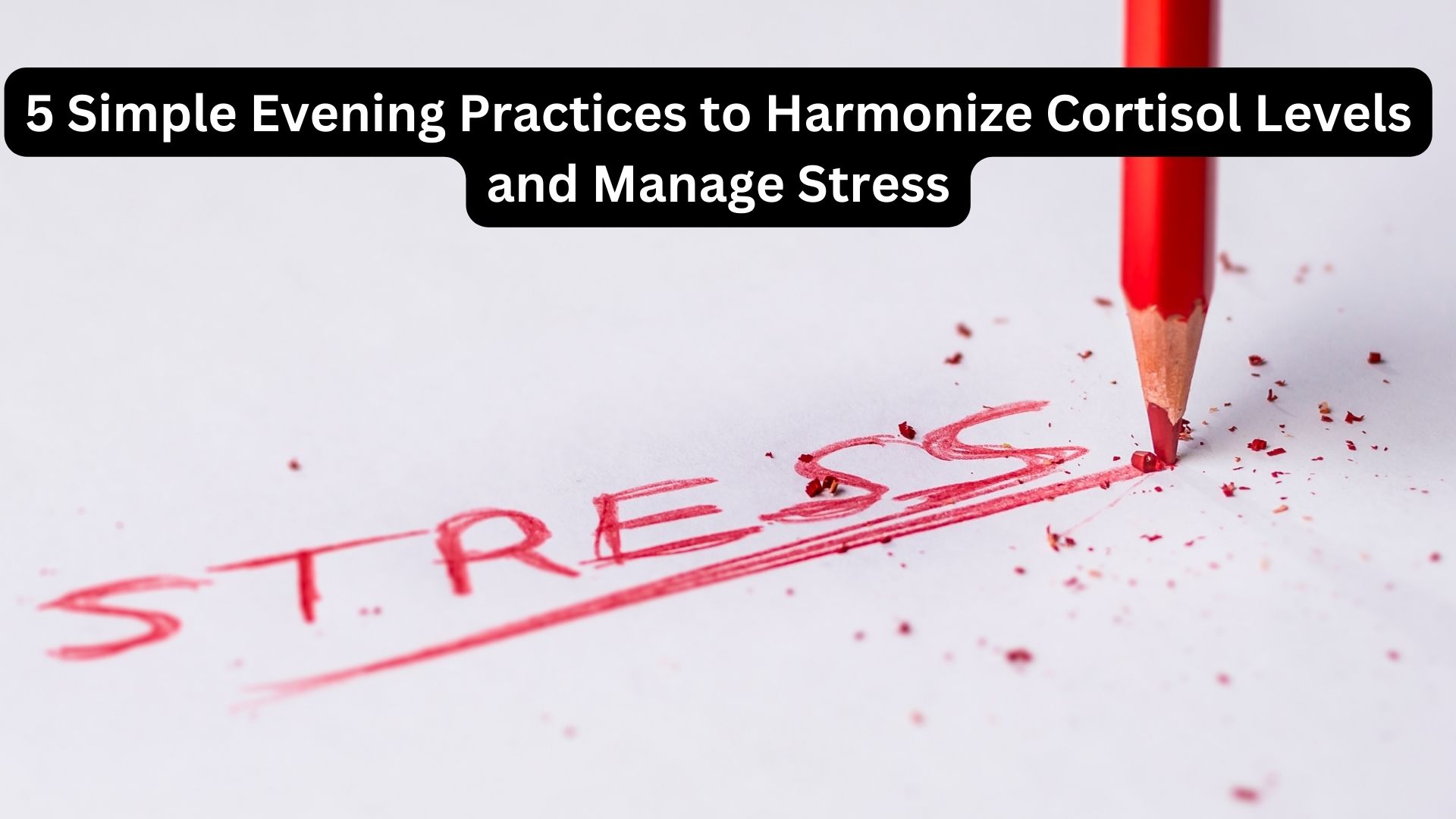
Amidst the hustle and bustle of contemporary life, stress has become an ever-present companion for many individuals. This stress not only affects our mental well-being but also has repercussions on our physical health, chiefly through its influence on cortisol levels. Cortisol, commonly known as the “stress hormone,” plays a pivotal role in various bodily functions, such as regulating metabolism, reducing inflammation, and controlling the sleep-wake cycle. However, prolonged stress can result in elevated cortisol levels, leading to issues like weight gain, sleep disturbances, and a compromised immune system. Adopting straightforward evening routines can aid in balancing cortisol levels and alleviating the effects of stress. Here are five effortless evening routines to help you unwind, regulate cortisol, and embrace a calmer state of being.
- Disconnect from Digital Devices: In today’s digital era, evenings often involve scrolling through social media, checking emails, or binge-watching TV shows. However, the blue light emitted by screens can disrupt our circadian rhythms, making it difficult to fall asleep and potentially maintaining high cortisol levels. To counteract this, establish a digital curfew at least an hour before bedtime. Utilize this time for relaxing activities devoid of screens, such as reading a book, journaling, or practicing meditation. Disconnecting can significantly enhance sleep quality and reduce stress.
- Practice Mindfulness or Meditation: Studies have demonstrated the profound impact of mindfulness and meditation on stress reduction and cortisol level regulation. Even a few minutes of meditation can evoke a state of relaxation, known as the “relaxation response,” counterbalancing the body’s stress response. Dedicate time each evening to practice mindfulness or meditation. You can begin with guided meditation apps or simple breathing exercises—concentrate on deep, slow breaths to clear your mind and induce calmness. Regular practice can bolster resilience to stress and enhance overall well-being.
- Establish a Soothing Pre-Sleep Routine: A consistent pre-sleep routine signals to your body that it’s time to wind down, facilitating the natural decline in cortisol levels as bedtime approaches. Develop a soothing routine that may involve taking a warm bath, reading, or engaging in gentle yoga stretches. Incorporating calming essential oils, such as lavender, either in your bath or through aromatherapy, can further promote relaxation. These activities aid in transitioning your body and mind into a state conducive to restful sleep.
- Consume a Light, Nutritious Evening Snack: Your evening diet can influence cortisol levels and sleep quality. Consuming a heavy meal may cause discomfort and indigestion, while going to bed hungry can hinder sleep. Opt for a light, nutritious snack comprising complex carbohydrates and protein, such as a small bowl of oatmeal with nuts or a slice of whole-grain bread with avocado. These foods can facilitate serotonin production, a precursor to the sleep hormone melatonin, promoting a more restful night’s sleep.
- Engage in Gentle Physical Activity: While vigorous exercise can elevate cortisol levels, gentle physical activity in the evening can help reduce stress and prepare your body for sleep. Consider activities like a leisurely walk, tai chi, or restorative yoga as part of your evening routine. These exercises aid in releasing tension, improving circulation, and triggering the release of endorphins, the body’s natural stress relievers. Ensure the activity is gentle to avoid overstimulating the body before bedtime.
Balancing cortisol levels through simple evening routines can significantly impact stress levels and overall health. By disconnecting from digital devices, practicing mindfulness or meditation, establishing a soothing pre-sleep routine, consuming a light nutritious snack, and engaging in gentle physical activity, you can create an environment conducive to relaxation and stress reduction. Over time, these practices can lead to lower cortisol levels, improved sleep, and a heightened sense of calm and well-being. Consistency is key, so strive to incorporate these routines into your daily life for optimal results.
Also Read
Strategies for Building Resilience to Stress: Practical Tips to Enhance Your Coping Abilities
